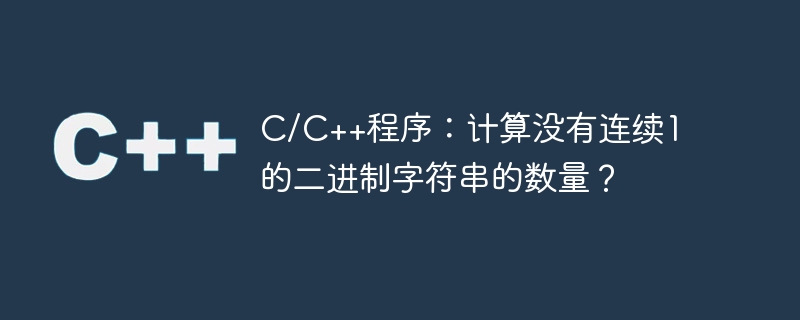
二进制数是只包含两个数字的数,即只有0和1。每个二进制数都是由二进制位组成的流,我们将其视为二进制字符串。对于这个字符串,我们需要找到不包含连续1的长度为N的二进制字符串的数量。
例如,对于N=5,满足给定条件的二进制字符串为00000 00001 00010 00100 00101 01000 01001 01010 10000 10001 10010 10100 10101。
一种方法是生成所有N位字符串,并仅打印满足给定条件的字符串。但是,当涉及到大规模运算时,这种方法效率不高。
另一种方法是使用递归。在递归的每一步中,我们将0和1附加到部分形成的数字上,并以少一个数字的形式进行递归。关键在于,只有当部分形成的数字的最后一位是0时,我们才附加1并进行递归。这样,输出字符串中就不会有连续的1。
Input: n = 5 Output: Number of 5-digit binary strings without any consecutive 1's are 13
#include <iostream>
#include <string>
using namespace std;
int countStrings(int n, int last_digit) {
if (n == 0)
return 0;
if (n == 1) {
if (last_digit)
return 1;
else
return 2;
}
if (last_digit == 0)
return countStrings(n - 1, 0) + countStrings(n - 1, 1);
else
return countStrings(n - 1, 0);
}
int main() {
int n = 5;
cout << "Number of " << n << "-digit binary strings without any "
"consecutive 1's are " << countStrings(n, 0);
return 0;
}以上是C/C++程序:计算没有连续1的二进制字符串的数量?的详细内容。更多信息请关注PHP中文网其他相关文章!




